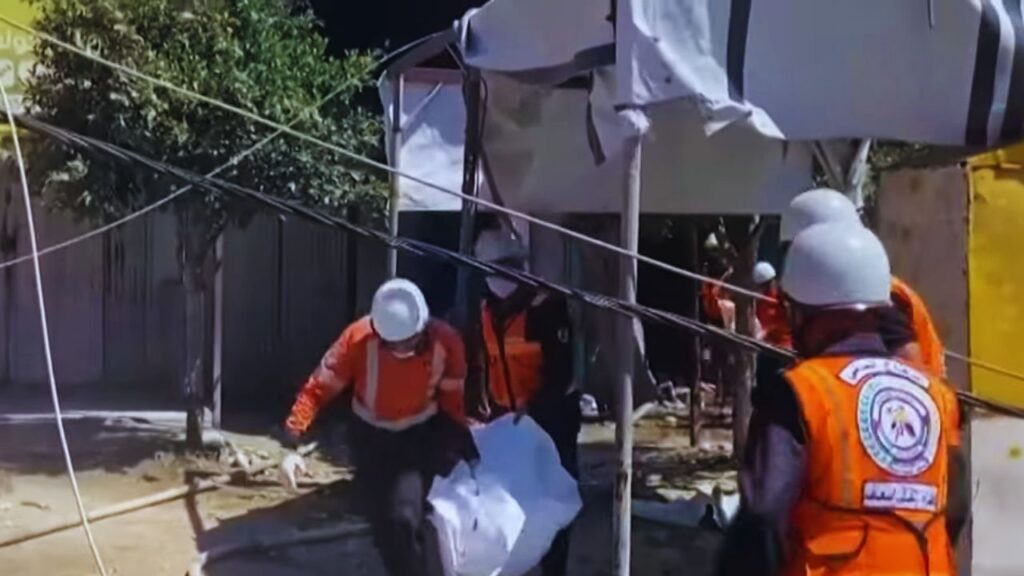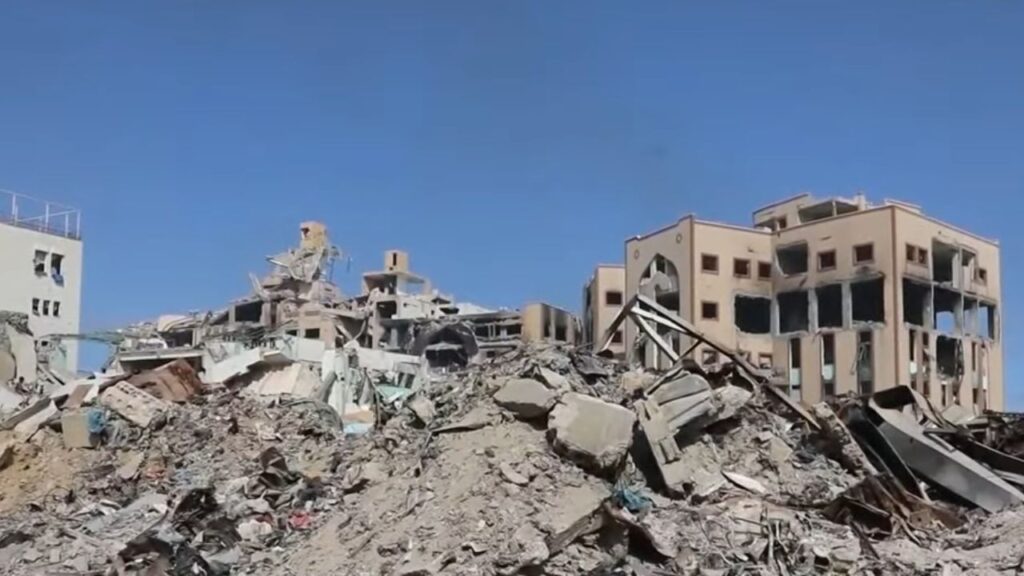On Sunday, May 25, 2025, Israeli airstrikes across the Gaza Strip resulted in the deaths of at least 38 Palestinians, including women and children, according to Gaza’s health ministry. The attacks targeted multiple areas, including Khan Younis in the south, Jabalia in the north, and Nuseirat in central Gaza. In Jabalia, local journalist Hassan Majdi Abu Warda and several family members were killed when an airstrike hit their home. In Nuseirat, Ashraf Abu Nar, a senior official in the territory’s civil emergency service, and his wife were killed in their residence.
A particularly devastating incident occurred in Khan Younis, where nine children from the Al-Najjar family were killed in an airstrike on their home. Their father, Dr. Hamdi Al-Najjar, remains in intensive care, while their mother, Dr. Alaa Al-Najjar, was working at a nearby hospital at the time of the attack.
Strikes on Civilian Shelters Raise Alarm
Israeli airstrikes have also targeted civilian shelters. In Gaza City, a school repurposed as a shelter for displaced families was hit, resulting in at least 25 deaths, predominantly women and children, and injuring over 55 others. The Israeli military stated that the school was being used as a command center by Hamas and Islamic Jihad.
Additional reports indicate that strikes on other civilian shelters, including tents housing displaced individuals in Deir al-Balah and Nuseirat, have led to further casualties, including women and children.
Israel’s Military Objectives and Territorial Control
The Israeli military has announced plans to expand its control over the Gaza Strip, aiming to occupy 75% of the territory within two months. This strategy involves the deployment of five divisions and a potential ground offensive if hostages taken during the October 7, 2023, attacks are not released. Currently, Israel controls approximately 40% of Gaza.
Prime Minister Benjamin Netanyahu has reiterated intentions to bring the entire Gaza Strip under Israeli control, stating that the military will “pound” enemy positions in the south and withstand international pressure to cease operations.
Humanitarian Crisis Deepens
The ongoing conflict has led to a severe humanitarian crisis in Gaza. The World Health Organization reports that the entire population of Gaza is facing prolonged food shortages, with nearly half a million people in a catastrophic situation of hunger, acute malnutrition, starvation, illness, and death.
Access to medical care is also critically limited, with hospitals overwhelmed and lacking essential supplies. The blockade has hindered the delivery of humanitarian aid, exacerbating the suffering of civilians.
International Response and Calls for Ceasefire
The escalating civilian death toll and humanitarian crisis have prompted international condemnation. Several European Union member states and Arab nations have called for an immediate ceasefire and the resumption of humanitarian aid deliveries. Spain has urged the international community to consider sanctions on Israel to end the war on Gaza.
The United Nations has expressed grave concern over the situation, with the UN Human Rights Office condemning the offensive as tantamount to ethnic cleansing.
As the conflict in Gaza intensifies, the civilian population continues to bear the brunt of the violence. With mounting casualties, widespread displacement, and a deepening humanitarian crisis, urgent international action is required to address the unfolding tragedy and work towards a sustainable resolution.
The Information is Collected from MSN and BBC.






































